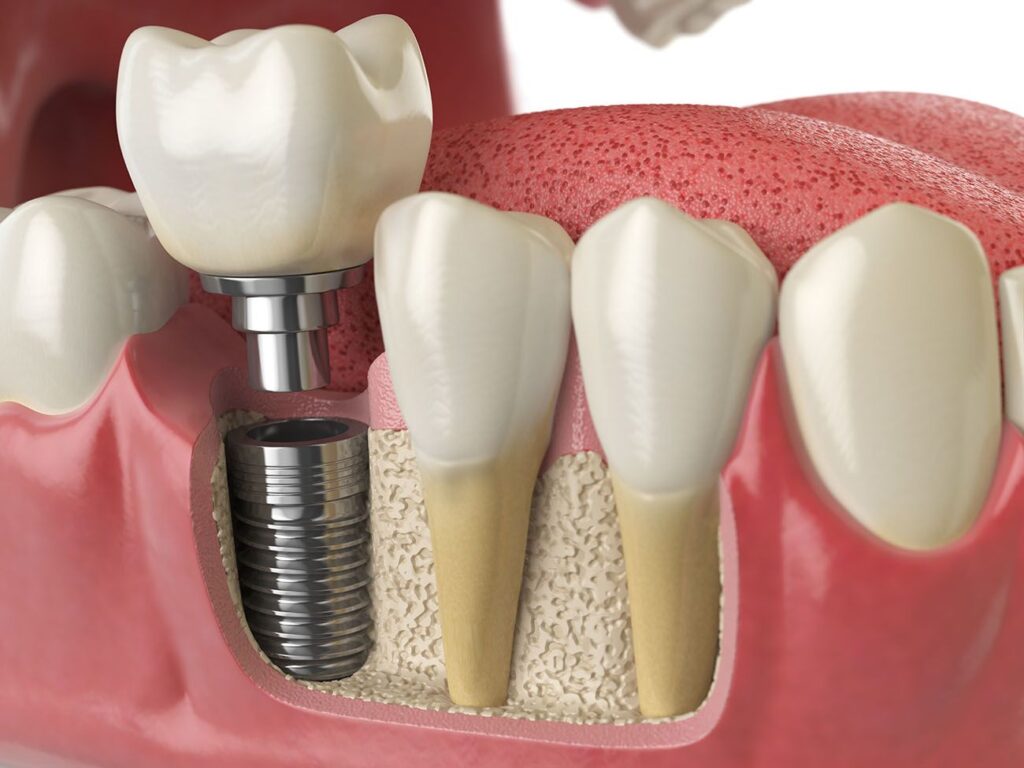Tooth loss affects millions of people around the world. Your oral health may decline if you do not seek restorative treatment from your dentist to replace missing teeth. Even one missing tooth could disrupt your life in a number of ways.
Dental implants are the best way to prevent further deterioration of your oral health in the wake of tooth loss. Specifically, implants can protect your jawbone where removable tooth replacements cannot. Read on to learn more about how implant dentistry can improve the health of your jaw after tooth loss.

What Happens to the Jaw When You Lose a Tooth?
A healthy dental patient has a full set of teeth, and each tooth extends below the gum line into a root that reaches the jawbone. The tooth root stimulates the bone in the jaw, keeping it stable and healthy.
If you lose a tooth, the jawbone no longer receives stimulation. In the tooth root’s absence, the bone in the jaw will begin to deteriorate. This will alter the shape of the jaw, creating a sagging appearance in the face.
This can hinder oral function as well and cause remaining teeth to start shifting out of their straight position. You cannot stop this effect on your own and will require intervention from your dentist to prevent this complication in the wake of tooth loss.
How Can Dental Implants Help Jawbone Health?
To protect your jaw health after you lose a tooth, a dentist can suggest dental implants to replace any missing teeth. These fixtures have a titanium post anchor that a dentist surgically inserts into the jaw. As you heal from this procedure, the anchors fuse with the jawbone.
This creates a solid foundation for the prosthetic teeth above the gumline. But they also serve as a substitute for the missing tooth roots too. The anchors stimulate the jawbone once again, stopping the bone from degenerating.
In some cases, the implants can encourage lost bone to regrow as well. This preserves your facial and dental structure while also restoring the look, function, and health of your smile. Removable tooth replacements like dentures only replace teeth above the gumline and cannot offer this benefit.
Can My Jaw Support Dental Implants?
Though the advantages of implant dentistry seem clear, not every dental patient will qualify for this treatment. Dental implants rely on the fusion of the anchors with the jawbone to establish support. So if you lost too much bone in the jaw already, then the fusion cannot happen successfully.
Your dentist will evaluate your jawbone health during a consultation appointment using x-ray imaging. This will determine your eligibility for this treatment. If you do not have enough jawbone, the dentist may suggest a bone graft to add structure to the jaw.
Then once you heal from that procedure, you may be able to sustain a dental implant without failure. Learn more by scheduling an appointment with your dentist today.
